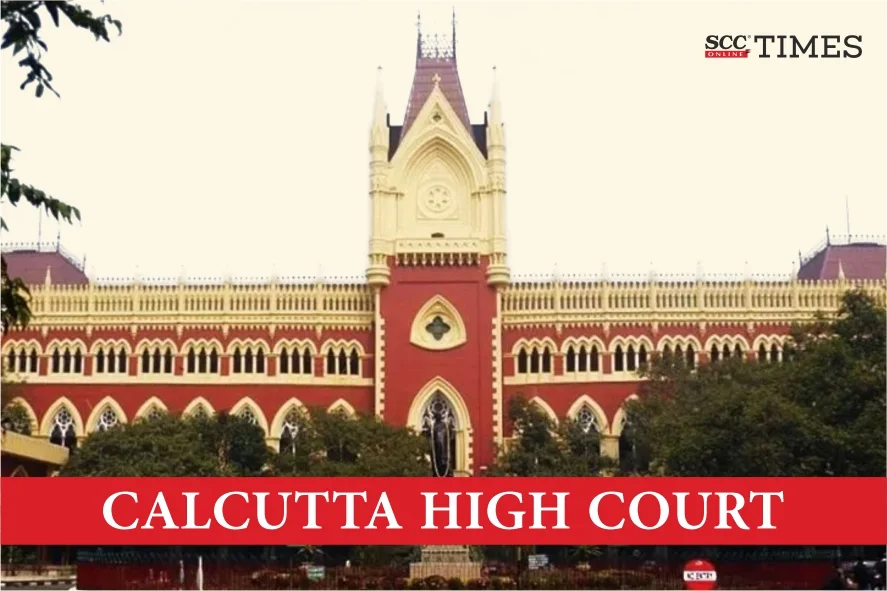Calcutta High Court: In a writ petition challenging termination order based on being punitive in nature and in violation the principles of natural justice and the provisions of the Central Civil Services (Temporary Service) Rules, 1965, a division bench comprising of Partha Sarathi Chatterjee and Tapabrata Chakraborty,* JJ., found that the termination was neither punitive in nature as it did not cast aspersions on the petitioner’s character or integrity, nor was it based on allegations of misconduct or inefficiency and held that the termination was justified based on the petitioner’s submission of false information and suppression of material facts.
In the instant matter, the petitioner was appointed as a Mazdoor in the Military Engineering Service (MES) on probation for a period of two years by a letter dated 01-08-2008. The petitioner submitted educational certificates at the time of appointment, stating his date of birth as 17-11-1984. An inquiry conducted later revealed discrepancies in the petitioner’s date of birth and educational history, including alleged use of fake certificates to gain admission to school. Following the inquiry, the petitioner’s service was terminated by an order dated 07-06-2009. The petitioner challenged the termination order through an original application, which was dismissed by the tribunal. The petitioner filed the present writ petition challenging the tribunal’s decision. The main question to be determined in the present writ petition is as to whether the termination can be termed as an innocuous termination simpliciter or it is an order of punishment based on the alleged misconduct of the petitioner.
The petitioner contended that the termination order was punitive in nature, as it was based on unsubstantiated allegations and without proper inquiry. It was contended that the petitioner’s character and integrity were questioned without evidence of misconduct. It was argued that the impugned termination violated Rule 5 of the Central Civil Services (Temporary Service) Rules, 1965, and the principles laid down in relevant case laws. On the other hand, the respondents contended that the termination was justified due to discrepancies found in the petitioner’’ documents, including the use of fake certificates. It was asserted that the appointment letter clearly stated that false information would result in termination, and the petitioner had the opportunity to respond to the show cause notice.
The Court referred to Shamsher Singh v. State of Punjab, (1974) 2 SCC 831, where the Supreme Court clarified that termination of a probationer’s service may constitute punishment if based on misconduct without proper enquiry and opportunity to be heard. The Supreme Court held that “if a probationer is discharged on the ground of misconduct, or inefficiency or for similar reason without a proper enquiry and without his getting a reasonable opportunity of showing cause against his discharge it may in a given case amount of removal from service within the meaning of Art. 311(2) of the Constitution.” The Court held that the termination of a probationer’s service is not per se dismissal or removal, but if it results in adverse consequences or casts doubt on the employee’s character, it may be considered punitive and the Court can certainly interfere.
“There is no dispute as regards the proposition of law that the termination of services of a probationer under the rules of his employment is neither per se dismissal nor removal. However, if the order visits the employee with evil consequences or casts aspersions against his character or integrity, it would an order by way of punishment and the Court can certainly interfere.”
The Court noted the discrepancies in the petitioner’s date of birth and his admission to school on the basis of false documents. The Court noted that in the present matter, the termination order neither contained any stigmatic remarks against the petitioner, nor was based on allegations of misconduct or inefficiency, but was issued after considering discrepancies in the petitioner’s documents and his response to the show cause notice. The Court found no evidence of misconduct or inefficiency cited in the termination order, indicating that the termination was not punitive.
The Court upheld the termination of the petitioner’s service, finding it justified based on discrepancies in his documents and his failure to provide satisfactory explanations. The petitioner’s challenge against the termination order was dismissed, and no costs were awarded.
[Shyamapada Patra v. Union of India, 2024 SCC OnLine Cal 2376, order dated 06-03-2024]
*Judgment by Justice Tapabrata Chakraborty
Advocates who appeared in this case :
Mr. Asim Kumar Niyogi, Mr. Amit Banerjee, Mr. Vaskar Pal, Counsel for the Petitioner
Mr. Daya Shankar Mishra, Ms. Sabnam Laskar, Counsel for the Respondents




very useful